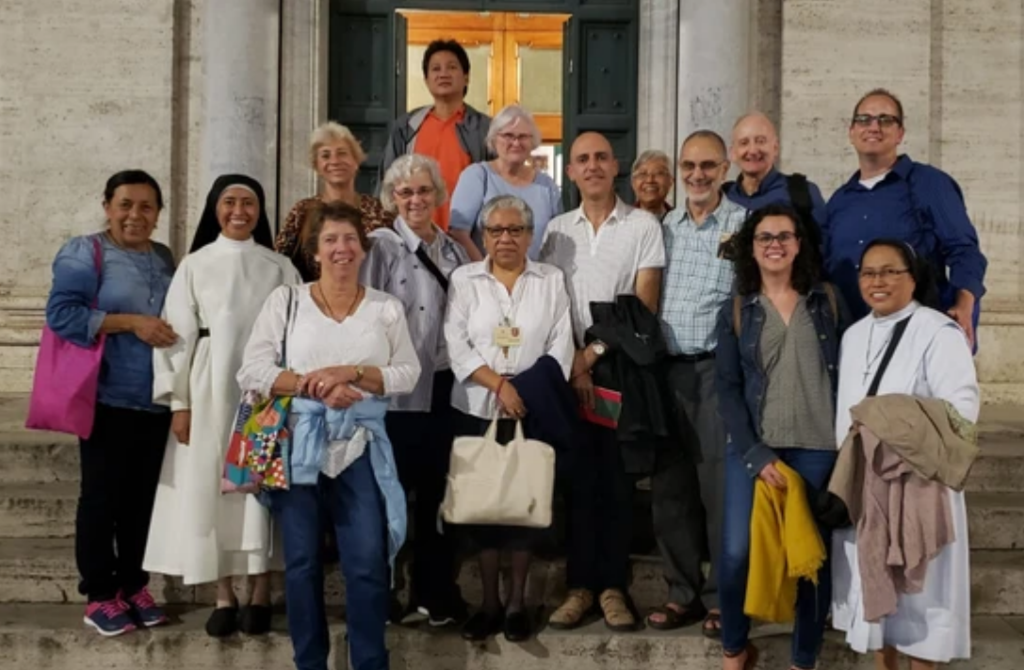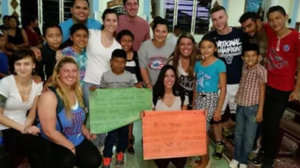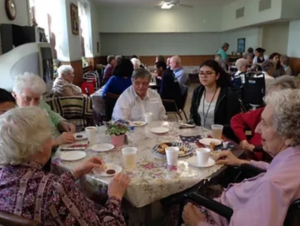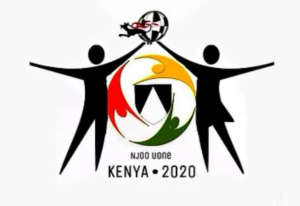DYM youth (International Dominican Youth Movement), through the international commission of IDYM (InternationalDominican Youth Movement) have a representative at the IDCJP (International Dominican Commission of Justice andPeace) of the Order. But, what is this? What’s it for? Who is part of this commission? What do they do? And… so many otherquestions surely arise only with the first line. Perhaps between abbreviations, structures and representatives, we become amess and in the end, we are not very clear about what it is or why it is important to be part of this commission. So here we go.
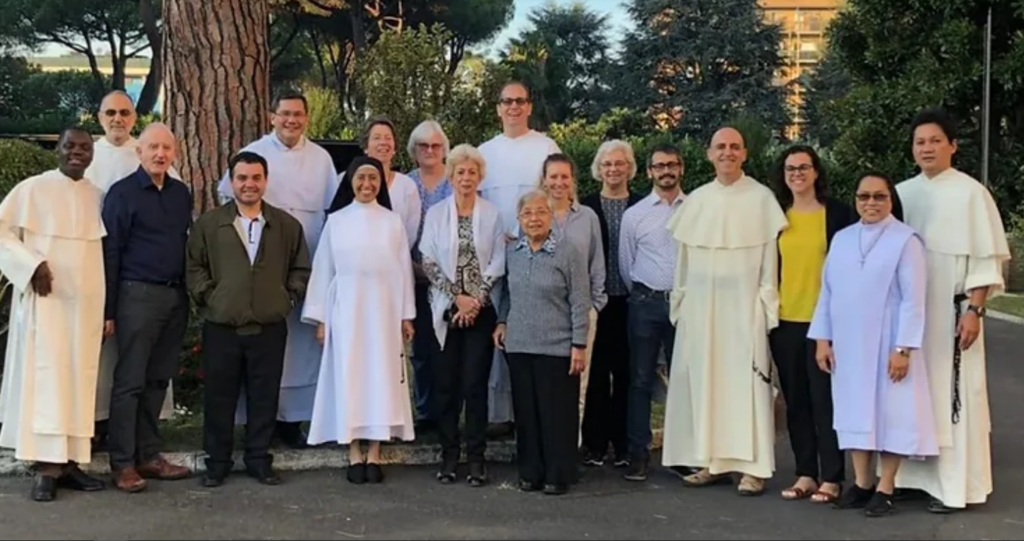
The International Dominican Commission for Justice and Peace seeks to respond to “action in favor of justice as aconstitutive dimension of the preaching of the Gospel” (1971 Synod of Bishops). Specifically, the commission aims to supportand encourage the Dominican family in its efforts to preach more deeply the Gospel of life, justice, peace, and the integrityof creation. To this end, it brings together the various branches of the Dominican Family to develop a common reflectionand action for the fulfillment of this mission. (Statutes IDCJP)
A bit of history:
1977 – a General Promoter is named as well as regional Justice and Peace promoters among the friars. 1987 – sisters (Dominican congregations) join with Promoters for Justice and Oeace
1993 – this group of friars and sisters becomes the International Dominican Commission for Justice and Peace(IDCJP)
1995 – Regional Justice and Peace promoters are named among the sisters.
1996 – the presence of a permanent delegation of Dominicans at the UN, centred on the Commission on HumanRights in Geneva, is approved.
1997 – the Dominican Leadership Conference (Dominican congregations in the United States) apply for UN status(to be able to have a presence at the UN in New York)
1998 – NGO Dominicans for Justice and Peace is created
2002 – Dominicans for Justice and Peace and Dominican Leadership Conference recibe the ECOSOC status(economic and social council) at the UN
2002 – a sister is named co-promoter of Justice and Peace (so we have 1 friar and 1 sister)
2015 – representation of nuns, laity and DYM are included in the International Commission for Justice and Peace
Now, having all this in mind, I’ll share the experience. The commission meets once a year, and last meeting was held thisOctober 12-16. The 20 members of the commission met for the purpose of sharing, evaluating and planning our next stepsin relation to issues of justice, peace and care for creation. You may wonder what we have to do with this, or what thismeeting has to do with the presence of the Order at the UN, or what we young people contribute from the DYMperspective. Our presence in the commission is not only necessary and coherent, since it is presented as a reality of theDominican Family, but it is also a forum in which to contribute from our reality. We are fortunate to be very welcome by therest of the members (it is a luck, as they all have a long experience and trajectory in issues of justice and peace). It is difficultto transmit with a text how much youth are loved in this context/commission (as in many others). Of course, the first thing weneed to do is to understand well the reality of the committee, its functioning and its objectives. From then on, we are onemore member, with the option of taking initiatives, contributing, giving ideas, and of course… learning at a vertiginous speedabout the reality of our world!
I mentioned before that we Dominicans have a permanent delegation at the UN. Did you know that the UN has 4headquarters? Surely the UN in Geneva and New York will come to mind for all of us, but there are also headquarters inVienna and Nairobi. Different commissions are carried out in each of them and it is important to have a presence in all ofthem. What we seek with our presence in the institutions is to raise and bring to these forums social realities that throughthe politics of the countries do not arrive. We will include here, for example: Human rights issues (human trafficking, sexualexploitation, lack of access to basic resources and education); environment (over-exploitation of resources in the Amazon,in large regions of Central Africa); women’s rights (to education, to have a voice in their lives, against child marriage);migration (the drama of migration that we live today in so many regions) etc. These are just a few examples.
Our representatives in the 4 UN headquarters seek to introduce these issues in the work of the different commissions, aswell as to have access to the documents that the international institutions are working on and to ensure that they do not goagainst the fundamental rights of individuals. This means that their (and our) job is to watch over people’s fundamentalrights.
But of course, we have 4 delegations and an infinite number of worrying issues that should be dealt with and resolved. It isin this context that the commission comes into play, because it is a way to network and connect with the Dominican Familyof the world and be able to generate awareness and mobilization in all places. The work on the one hand is to help raiseawareness of the problems (especially in human rights issues) that exist in our world, how we are all connected and what1987 – sisters (Dominican congregations) join with Promoters for Justice and Oeace 1993 – this group of friars and sisters becomes the International Dominican Commission for Justice and Peace(IDCJP) 1995 – Regional Justice and Peace promoters are named among the sisters. 1996 – the presence of a permanent delegation of Dominicans at the UN, centred on the Commission on HumanRights in Geneva, is approved. 1997 – the Dominican Leadership Conference (Dominican congregations in the United States) apply for UN status(to be able to have a presence at the UN in New York) 1998 – NGO Dominicans for Justice and Peace is created 2002 – Dominicans for Justice and Peace and Dominican Leadership Conference recibe the ECOSOC status(economic and social council) at the UN 2002 – a sister is named co-promoter of Justice and Peace (so we have 1 friar and 1 sister) 2015 – representation of nuns, laity and DYM are included in the International Commission for Justice and Peace. happens in one place affects in many others. On the other hand, it is to be able to elevate situations from “the ground”.Make use of the Dominican Family network to denounce situations that violate human rights. Cases of actuality for examplein El Seibo (Dominican Republic) with the evictions of the sugar factories; in the United States deportations of immigrants; inIndia violence, deprivation and abuse against women and children; and a long etcetera.
If we are capable of raising awareness, forming consciences, getting involved and not looking the other way, our voice canbe very powerful. No one said it would be easy or immediate, or that our denunciations would solve situations overnight,but we cannot remain impassive, nor remain silent, nor look elsewhere.
It is in this context that, in the Order, for three years now, during Advent, we have had the initiative of the “Dominican Monthfor Peace”. In 2017 it was to raise awareness about the situation of the armed conflict in Colombia; in 2018 the situation inthe Democratic Republic of the Congo; and this December it will focus on India. An initiative to create awareness thatproblems in one place are both the product and consequence of global actions.
Moreover, at the regional, national and local levels, there are forums and projects on justice and peace. Some from theDominican Family, others in network with other ecclesial institutions. Of course, it would be coherent for all of us to knowthem and, to the extent of our possibilities, to participate in them.
So, what do you think? Does the participation and voice of youth make sense in this commission? For me there’s no doubt.Each branch, in our own way and in our own reality, we have more than enough capacity to collaborate in the struggle forall people to have a dignified life in a safe place and with access to resources to meet their basic needs.
Mónica Marco
IDYM CommissionOctuber 2019

